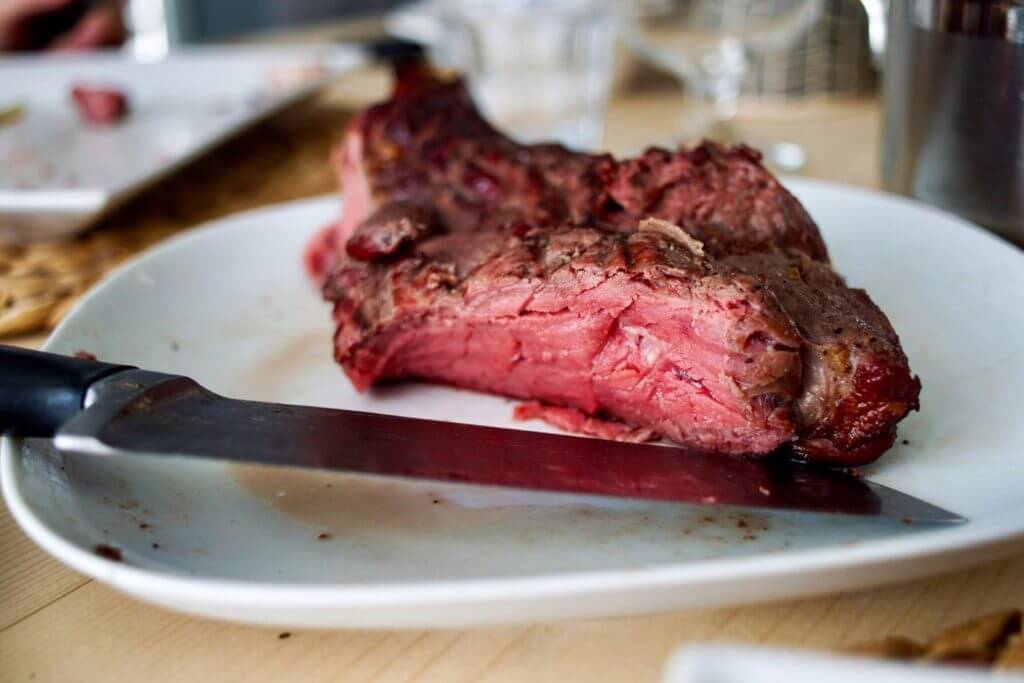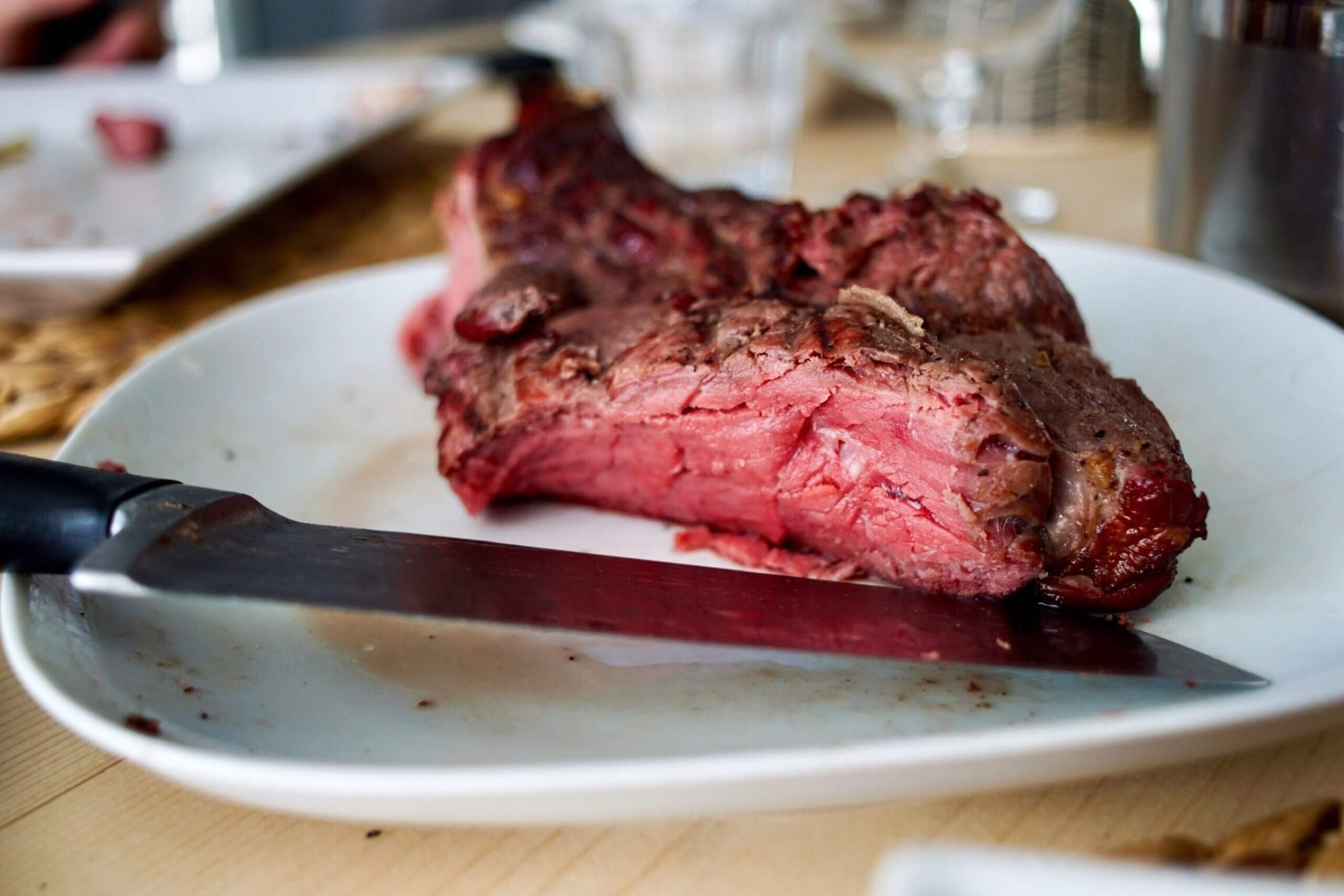The gut chemical TMAO is responsible for hardening the arteries, according to a new study. The chemical is produced as a byproduct of red meat metabolism and plays a critical role in increasing the risk of cardiovascular disease. This research sheds light on the link between the gut and heart health.
Researchers from the University of Colorado suggest that we may be able to prevent and possibly even restore arteriole damage by eating less red meat. Additionally, the production of supplements that reduce the amount of TMAO in the bloodstream could provide a more targeted approach to treat the condition.
“Our work shows for the first time that not only is this compound directly impairing artery function, it may also help explain the damage to the cardiovascular system that naturally occurs with age,” says first author Vienna Brunt, in a statement. Brunt is a postdoctoral researcher in the Department of Integrative Physiology.
The True Source of Heart Damage

Bacon and eggs – the most loved breakfast cuisine – are just a few of the foods that stimulate the production of TMAO (trimethylamine-N-oxide) in the gut. Immediately after the consumption of such foods, the microbes in the gut produce trimethylamine which is a byproduct of the breakdown process. Trimethylamine is then made into TMAO in the liver. TMAO is sent to the rest of the body via the bloodstream.
Increased levels of this protein were linked to an increased risk of heart attack or stroke, and a shorter life expectancy overall, according to the study. The reason behind this, however, remains a mystery.
Brunt wanted to know whether TMAO causes harm to our arteries and the mechanism by which it does so. Additionally, Brunt wanted to investigate if TMAO is a contributing factor to the worsening of heart health as we age and whether it affects those who engage in regular physical activity and refrain from smoking.
Brunt and colleagues conducted a full cardiovascular exam on 123 participants. Of the study group, 22 were healthy controls between the ages of 18 and 27, while the other 101 were 50 to 79 years of age.
The analysis of blood samples and arteriole walls revealed that TMAO levels climb dramatically with age. This study corresponds with recent research in mice, which shows that age also alters the gut microbiome, resulting in the reproduction of additional microbes that contribute to the production of TMAO.
In the latest study, researchers discovered that those with increased TMAO blood levels had much lower arterial performance, as well as more evidence of damage within their blood vessel linings. Similarly, in mice studies, the team noticed rapid deterioration in blood vessels after the younger mice consumed TMAO directly. “Just putting it in their diet made them look like old mice,” adds Brunt.
Dementia Association
There is also evidence that TMAO has an effect on learning and memory in mice, which suggests that the chemical may have a part in the decline of cognitive abilities with increased age. However, a chemical present in red wine, olive oil, and vinegar, termed dimethyl butanol, is shown to reverse vascular dysfunction in older mice. TMAO formation is thought to be prevented by this chemical.
TMAO is produced by everyone, including young vegans, says Brunt. This study shows, however, consuming large amounts of animal proteins may lead to health problems in the long run. “The more red meat you eat, the more you are feeding those bacteria that produce it,” she says.
This is a significant advance for cardiovascular health as the study highlights a key mechanism in the deterioration of arteries as we age, says Principal investigator Dr. Doug Seals, head of the Integrative Physiology of Aging Lab.
The study team is currently looking into chemicals that may be able to inhibit the synthesis of TMAO in order to halt the progression of age-related vascular degeneration. For a holistic approach, individuals should probably focus on healthier foods such as veggies and tofu, since a diet high in plant foods has been shown to lower TMAO levels.
The full study can be found in the journal Hypertension.
